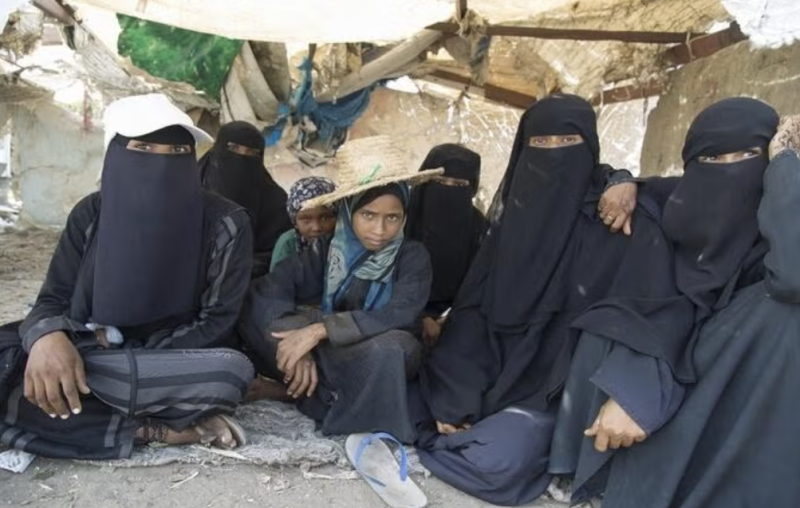UNDP : Youth are the future in Yemen


In Yemen, young people make up almost thirty percent of the population. Ensuring education and vocational training opportunities are widely available is key to empowering this burgeoning community with the skills to succeed.
From specialty food processing to engineering, Yemen’s young people are overcoming adversity by upskilling and breaking into diverse fields of work.
Yasser runs "Mr. Robot Center" in Ma'alla, Aden, where he provides training on engineering and robotics. He's passionate about providing practical, real-world skills, but his center faced a significant hurdle: a lack of essential materials for hands-on training. This limited the type of practical courses he could offer.
With support from the World Bank’s International Development Association, Yasser is one of many young entrepreneurs empowered by UNDP and the Small and Medium Enterprise Promotion Service (SMEPS) across Yemen to improve their income-generating businesses. Yasser was provided with financial support to purchase a carving machine, laptops, motors, Programmable Logic Controller devices, and solar panels. This support has transformed the center, allowing him to implement practical applications that truly mimicked factory environments and, thanks to the solar panels, he tackled persistent electricity issues.
Yasser’s center saw a significant increase in courses and a 30% rise in revenue, thanks to the training, consultations, and financial support he received through the Emergency Social Protection Enhancement and COVID-19 Response Project (ESPECRP).
Ashjan’s small enterprise in Marib Governorate isn’t just a business; it’s a testament to her entrepreneurial skills. Supported by the European Union and Government of Sweden through the Enhanced Rural Resilience in Yemen (ERRY) III Joint Programme, Ashjan, along with 79 other young women, received comprehensive training in value-added sesame processing. This hands-on skill, from cultivation to extraction and packaging, turned a traditional crop into a source of income for Ashjan and her family.
“Some people were surprised to see a woman running a sesame oil press,” Ashjan shares. “But I proved to them that women can succeed in any field they choose.”
Ashjan’s journey illustrates how practical skills can ignite economic recovery.
In Yemen’s coastal communities, youth are not only contributing to the economy but also championing environmental sustainability.
Through the Aden Fishery Harbour (AFH) Project, with funding from the German Federal Ministry for Economic Cooperation and Development (BMZ) through Kreditanstalt für Wiederaufbau (KfW), young people like Baraka have transformed their passion for cooking into sustainable seafood enterprises. After receiving business management training and essential equipment, Baraka turned her home kitchen into a thriving business that provides fresh, local seafood to her neighborhood. Her business model promotes local sourcing and reduces food waste, showing how youth-led enterprises can support green value chains while empowering women entrepreneurs.
“The training equipped me with the business skills I needed to launch and sustain my seafood enterprise,” said Baraka. “Today, I’m proud to offer healthy, locally sourced meals while contributing to my community’s food security and economy.”
Warda, a young woman from Aden, is turning waste into home decor, also with support from the same project. After attending specialized training on fish by-product utilization and receiving a small grant, she launched a creative business producing eco-friendly accessories and gift items from recycled seashells. Her initiative not only creates income but also contributes to marine conservation and waste reduction.
“The training opened my eyes to how fish waste could be repurposed into something valuable,” said Warda. “With the grant and mentorship, I’ve started a business that supports my livelihood.”
Further contributing to the sustainable development of Yemen’s coastal communities, through the Sustainable Fishery Development in Red Sea and Gulf of Aden (SFISH) Project, funded by the World Bank’s International Development Association, young women like Fatima are leading by example in responsible marine resource management.
Fatima received support in the form of technical training, tools, and market access to establish her fish processing business. She now contributes to both her family’s income and community food systems while promoting quality standards and reducing waste, key elements in climate-smart fisheries.
“Before the project, I lacked the knowledge and tools to run a proper business,” said Fatima. “The support I received helped me build confidence, improve product quality, and operate in a more sustainable and professional way.”

By/April Longley Alley* Among the broader regional repercussions of the Gaza ceasefire in October, one of the most signifi…

Al-Hodeidah – Local sources in Yemen’s Al-Hodeidah province have disclosed that Houthi militias are resorting to new methods of exploit…

By Jamal Al-Awadhi For years, Yemen has been treated by the international community as a marginal conflict an unfortunate…